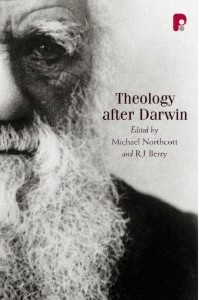We’ve been working through Denis O. Lamoureux’s book Evolutionary Creation: A Christian Approach to Evolution – a book that describes a way to move beyond the creation and evolutions debates. In Chapter 8 Dr. Lamoureux’s describes a Christian approach to human evolution proposing a way to reconcile scripture, Christian faith and doctrine, and what is known from science. The debates on science and faith hinge on issues that can be divided up into three basic categories (1) Sin and Death, (2) Sin and Accountability and (3) Atonement.
 Mixed into the whole discussion is a view of scripture and the appropriate interpretation of scripture as the inspired word of God. The understanding of scripture is a serious issue, and I don’t want to minimize it, but I think it has become such a serious issue because of the impact a view of scripture can have on the more important theological questions. The inerrancy and infallibility of scripture has become a rallying cry because the alternative appears to be apostasy, denial of God, denial of the redeeming act of God in Jesus, reduction of Christian faith to demythologized universal moral platitudes and ‘social justice.’
Mixed into the whole discussion is a view of scripture and the appropriate interpretation of scripture as the inspired word of God. The understanding of scripture is a serious issue, and I don’t want to minimize it, but I think it has become such a serious issue because of the impact a view of scripture can have on the more important theological questions. The inerrancy and infallibility of scripture has become a rallying cry because the alternative appears to be apostasy, denial of God, denial of the redeeming act of God in Jesus, reduction of Christian faith to demythologized universal moral platitudes and ‘social justice.’
The question for today then is a Christian approach to human evolution in the context of the message of faith contained in Gen 3, Rom 5-8 and 1 Cor 15 . Dr. Lamoureux proposes that the question of Adam and of the fall is incidental to the message of scripture in general and to the message of Paul in particular. It is incidental because it is part of an ancient understanding of origins. The true impact of Paul’s message is Christ looking forward, not his use of Adam or understanding of human origins.
Is it possible that Adam is incidental to the Christian story?
More importantly perhaps, is it possible that the fall is incidental to the Christian story?
What are the theological consequences?


















